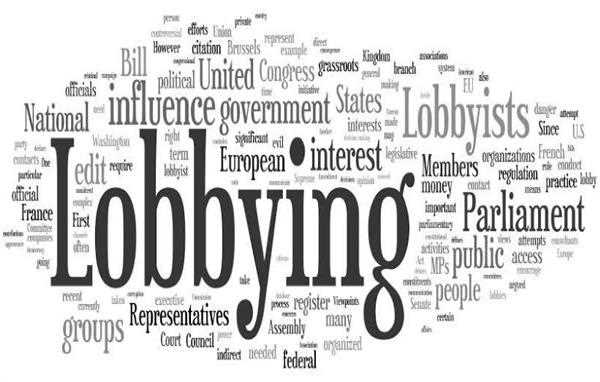Lobbying is the practice of individuals, organizations, or interest groups attempting to influence political decision-making processes. Lobbyists seek to shape public policy, legislation, and government actions by advocating for specific interests, policies, or issues. The role of lobbying in politics can be significant and influential, although it is a subject of debate and scrutiny. Here are some key aspects of lobbying in politics:

- Advocacy and Representation: Lobbyists serve as advocates, representing the interests of specific groups, industries, or causes. They provide a voice for their clients, presenting their concerns, viewpoints, and policy preferences to policymakers. Lobbyists engage in discussions, negotiations, and persuasion techniques to influence political decisions in favor of their clients.
- Information and Expertise: Lobbyists often possess specialized knowledge, expertise, and insights in their respective fields. They provide policymakers with information, research, and analysis related to specific issues or industries. This information can help policymakers make informed decisions and craft policies that align with the interests they represent.
- Access and Influence: Lobbyists aim to establish relationships and gain access to policymakers, government officials, and legislators. By building networks and maintaining connections, lobbyists can have direct interactions and engage in discussions with decision-makers. This access can provide them with the opportunity to present their case, provide information, and make persuasive arguments.
- Policy and Legislation Formation: Lobbyists actively participate in the policy-making process by offering input and suggestions during the formulation of legislation or regulations. They can propose amendments, modifications, or alternative approaches to policies. Lobbyists' influence can shape the content, scope, or direction of legislation, often aiming to benefit their clients or advance specific interests.
- Coalition Building: Lobbyists engage in coalition building, bringing together multiple stakeholders, interest groups, or industries with shared objectives. By uniting different entities under a common cause, lobbyists can amplify their influence and enhance the collective strength of their advocacy efforts. Coalition building allows for coordinated action and a greater likelihood of achieving desired policy outcomes.
- Political Campaign Support: Lobbyists and interest groups may provide financial support or resources to political campaigns. This support can take the form of campaign contributions, fundraising efforts, or the mobilization of grassroots support. Lobbyists leverage their resources and networks to back candidates who align with their interests or policy preferences, hoping to secure access and influence in return.
- Transparency and Regulation: Lobbying is subject to various regulations and disclosure requirements in many democratic systems. Governments and legislative bodies often establish rules and transparency measures to monitor lobbying activities, ensuring that they are conducted ethically and within legal boundaries. Transparency mechanisms, such as registration and reporting of lobbying activities, aim to promote accountability and prevent undue influence.
It is important to note that while lobbying can be a legitimate and essential aspect of democratic governance, concerns about its potential for undue influence, unequal access, and conflicts of interest exist. Striking the right balance between the influence of lobbying and maintaining a transparent, accountable, and fair political system is an ongoing challenge for policymakers and society as a whole.